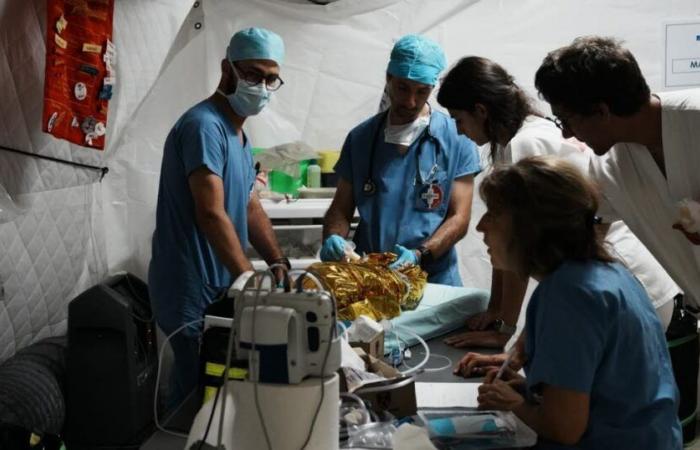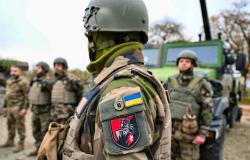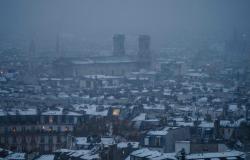He flew to Mayotte on December 16, following a call for reinforcements from the health reserve of the Public Health France agency, with the main mission of deploying a field hospital on the island of Mayotte. (read elsewhere), totally devastated by Cyclone Chido three weeks ago. The emergency resuscitation doctor at the Hospices Civils de Beaune, volunteer firefighter in Bligny-sur-Ouche, Sébastien Mirek finally returned to mainland France after being “relieved” by other caregivers. He was able to reunite with his family this Thursday, January 2.
“Difficult but extremely rewarding”
“It was a difficult but extremely rewarding adventure, serving the population […] I found a changed island: vegetation completely transformed, buildings destroyed, huge liners which found themselves stranded on the beach. We realized the power of this cyclone,” testifies the doctor, just a few minutes after his return to the premises of the Côte-d’Or Departmental Fire and Rescue Service (Sdis 21), in Dijon. .
Work in good conditions
An “unrecognizable” territory for someone who says he is “attached” to this island, which he was able to discover in 2023, with his partner, during another health reinforcement mission, excluding climatic episode. For his partner, Amélie Geusa, also a nurse at Beaune hospital and volunteer firefighter in the same Fire and Rescue Center (CIS), this departure was therefore “obvious”.
“Knowing Mayotte was, moreover, a strong asset because it allowed us to activate our local networks and support channels. But the field hospital took longer than expected to come into operation. Logistical delivery remains complicated,” recognizes the 42-year-old Côte-d’Orien.
In an area blown by winds of more than 200 km/hour, Civil Security and firefighters have nevertheless managed to create an autonomous “living zone” with access to water and electricity. “This allowed us to work in good conditions and to be able to live on site without having to move too much,” he explains, referring to the extremely degraded living conditions of the population there.
“Many wounds to treat”
On the medical side, caregivers had to treat “many wounds” caused, often by “sharp materials”. Sébastien Mirek details: “They are not taken care of immediately and all this is infected with the tropical climate that we know […] But we also had to do amputations and a car birth. […] Our role was, above all, to stabilize the patients on site before transferring them to the CHM.”
“It’s a collective success: I have in mind smiles, from children, from mothers and thanks. Our objective, which was fulfilled, is to take care of everyone without looking at each person's origins: we took care of anyone who presented themselves and who needed care. The population is very satisfied with this support,” concludes our interlocutor, far from the debates on the Government’s management of this major health crisis.
France






